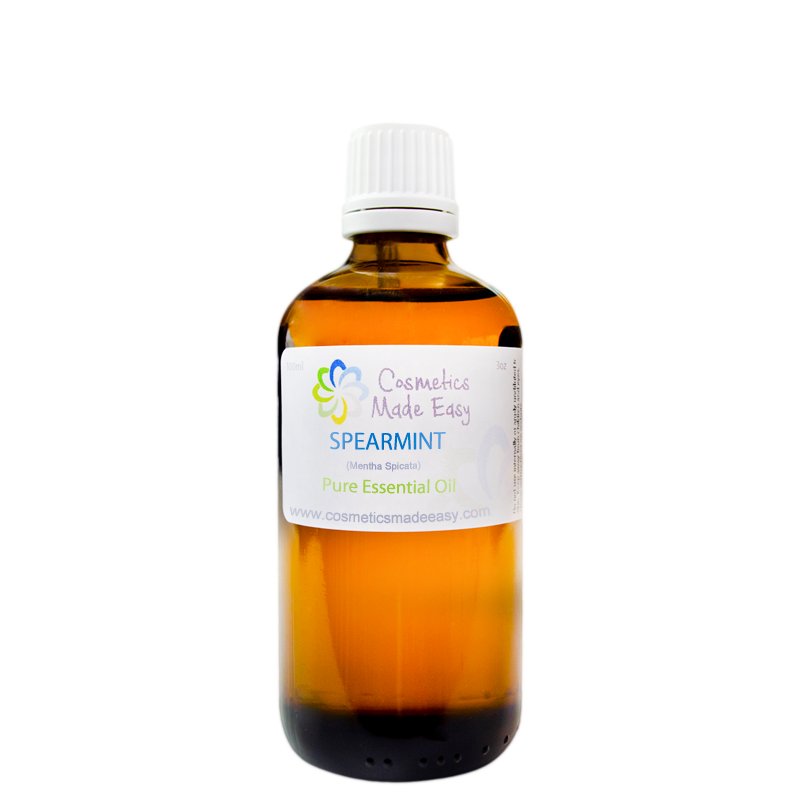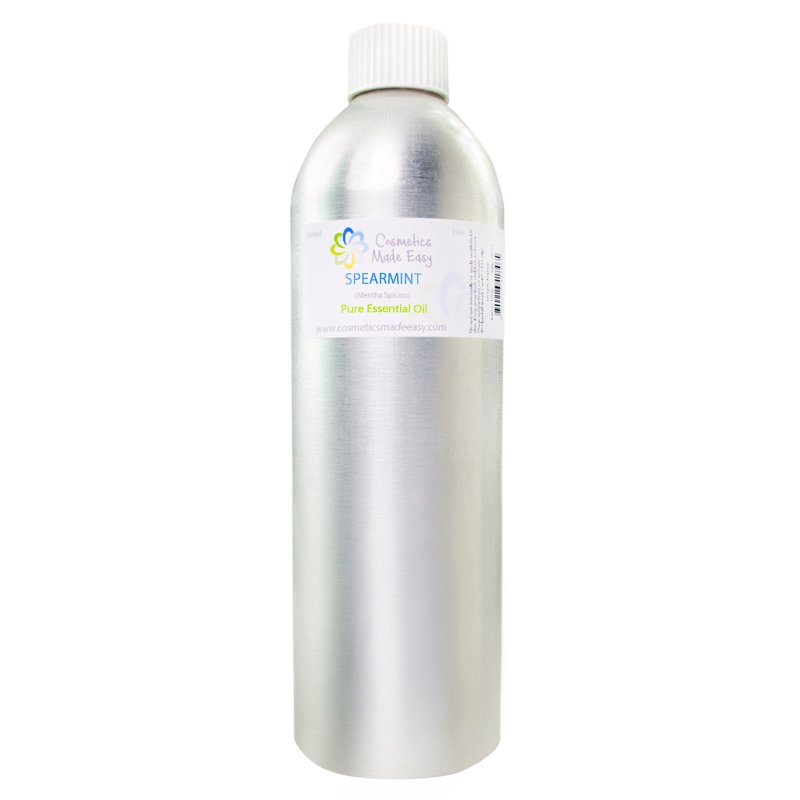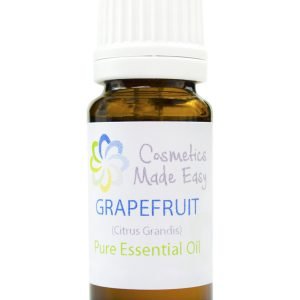Description
Spearmint Essential Oil
General Description: Spearmint is common across Europe and America and is one of the mint family. It is sweeter and less harsh than peppermint and is often used to tone down peppermint in a blend or as a gentler alternative. Botanical Family: Lamiaceae
Commonly associated with: Spearmint is used in a great number of commercial preparations for aiding digestion and for flavouring foods like chewing gum. It is an uplifting oil that is useful in stressful situation, when feeling lethargic or when needing focused concentration. It can be used as part of a blend to ease head and neck tension.
| Common Name: | Spearmint |
| Botanical Name: | Mentha Spicata |
| Scent: | Fresh, Sweet, Minty |
| Note: | Top |
| Extraction Method: | Steam Distilled |
| Country of Origin: | UK |
| Plant Part Used: | Leaves |
| Appearance: | Pale Yellow, Viscous |
| Blends well with: | Basil, bay, lavender, orange, Peppermint, rosemary |
| Main Constituents: | (-)-Carvone, (+)-Limonene, (Z)-Dihydrocarvone, 3-Octanol, Methone, 1,8-Cineole |
All our essential oils and absolutes are…
• 100% Pure, natural and unadulterated
• Suitable for use by home users and professionals alike
• Suitable for use in diffusers, oil burners, massage and skin care products
• Supplied in dark glass bottles to protect from light
• Fitted with a tamper evident lid and dropper
• Labelled with the common name, botanical name, country of origin, batch code and best before date
• Fully traceable to source
• SDS, allergen declaration and Certificate of Analysis available for download
Using Your Oil Safely & Effectively
• Keep out of the reach of children and animals
• Always dilute before applying to the skin. The safe percentage is different for each oil so should be checked.
• Do not take internally – whilst there is scope for the internal use of essential oils, this should only be done by a trained practitioner.
• Keep away from the eyes and seek medical advice if undiluted essential oil gets in the eye
• Remember, essential oils are potent and only a little is needed
• We recommend that you read our Basic Guide to Using Essential Oils which you can find in our Information Hub
Responsible Marketing
The Medicines act requires that, as vendors of essential oils, we do not say anything that could be interpreted as a medical claim. This means we cannot suggest that essential oils help, alleviate or cure any disease, disorder or medical condition, even very minor conditions like headaches, colds or congestion. Nor can we inform you of any traditional remedial uses of essential oils.
Scientific research is being carried out into the properties of essential oils but as, like wine, the oils vary from batch to batch, the findings can only be applied to the specific batch tested. This means that in the EU, essential oils cannot be licensed to make remedial claims in relation to a specific disease or adverse condition of the body of mind.
We do want you to be as informed as possible when using our essential oils and therefore would suggest that you do your own research either through an accredited aromatherapy course or using reliable books by industry recognised experts Robert Tisserand, Len Price or Shirley Price. The Aromatherapy Trade Council operate a voluntary code of conduct which we abide by and they are a good source of information. Aromatherapists registered with the IFPA may also be able to offer you advice. Please be wary of information you find on the internet as it is mostly unregulated and often promotes unsafe practices and makes unsubstantiated claims.
The information provided by Cosmetics Made Easy is for educational purposes only. It is not guaranteed to be complete or accurate, nor is it intended to diagnose, treat, cure or prevent any disease, disorder or medical condition. The use of any information provided is the sole responsibility of the user. We advise you to consult with a qualified health care professional prior to using complementary therapies.










Reviews
There are no reviews yet.